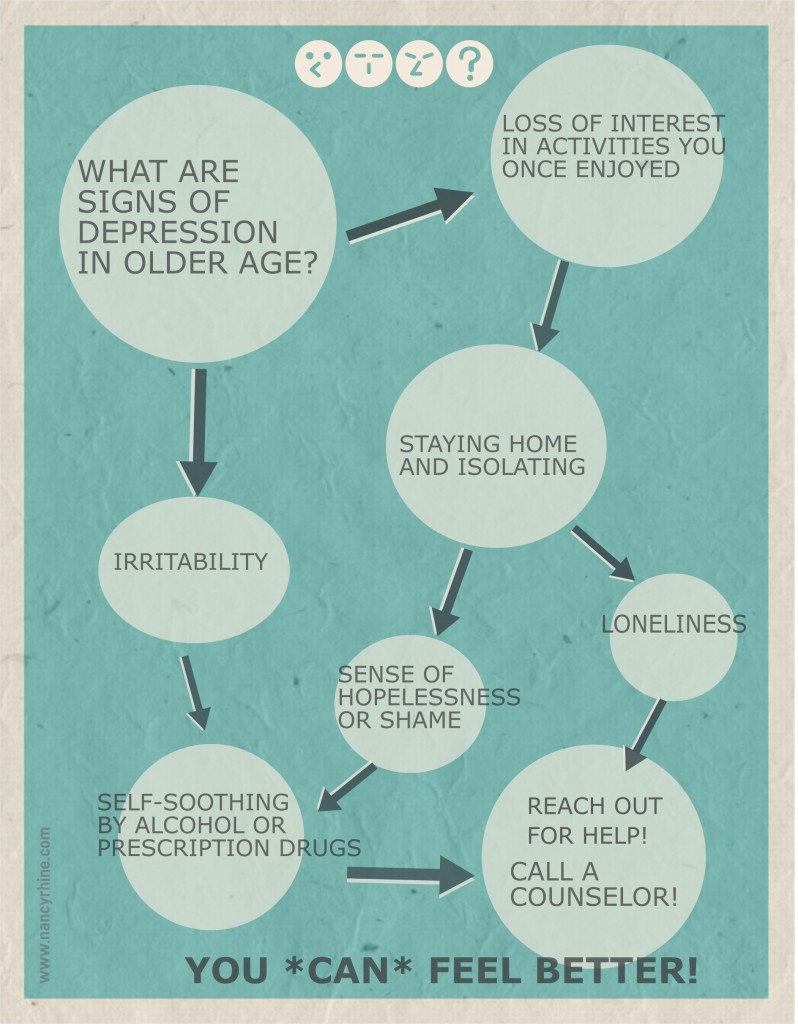Broad Band – Raising Women Up Out of Invisibility
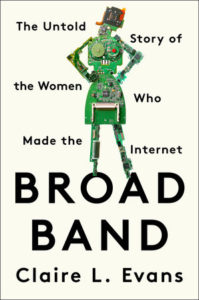 This week we saw the release of a new book chronicling a hidden segment of the female population who made important contributions to our world without most people ever realizing it. Similar to Hidden Figures, although perhaps not as dramatic as a WWII story, the women in Claire Evans’ Broad Band were creatives, science geeks, pragmatists, entrepreneurs, activists, visionaries and householders trying to make a living. They were some of the very few pioneering women who pushed out the boundaries and succeeded in the vastly male-dominated world of science and computing.
This week we saw the release of a new book chronicling a hidden segment of the female population who made important contributions to our world without most people ever realizing it. Similar to Hidden Figures, although perhaps not as dramatic as a WWII story, the women in Claire Evans’ Broad Band were creatives, science geeks, pragmatists, entrepreneurs, activists, visionaries and householders trying to make a living. They were some of the very few pioneering women who pushed out the boundaries and succeeded in the vastly male-dominated world of science and computing.
Claire takes on the daunting task of sifting through so many many stories and voices to feature just a few spanning over 100 years. She begins with ground-breakers like Ava Lovelace, Grace Hopper and the “two Betty’s” (Betty Jean Jennings and Betty Snyder). She spins the tales of “A Girl Named Jake” and tracks the women leaders through the days of the ARPANET, the early BBS’s, the dial-up’s, the emergence of the web and the world of gamers. As Claire poignently writes at the end of her book, there are hundreds of more stories to tell and women to feature – she hopes others will take up on the torch and keep giving voice to women’s contributions and stories.
I am so honored to have a few of my own stories told in Claire’s chronicle. It was a blast of a ride  to launch the first women-focused online site Women’s Wire to entice women to try out this new medium which would change our world. There were so few women online in the beginning. It was clear to me that we needed more diversity and more different kinds of voices involved in this new medium. Trying to teach women how to use computers was great fun – I was able to move from our mighty band of 1500 initial Women’s Wire subscribers to launch and mange a huge new “women’s channel” of 7,000,000 female subscribers at AOL. Once the doors opened to the Net for women, they flooded online and have never looked back.
to launch the first women-focused online site Women’s Wire to entice women to try out this new medium which would change our world. There were so few women online in the beginning. It was clear to me that we needed more diversity and more different kinds of voices involved in this new medium. Trying to teach women how to use computers was great fun – I was able to move from our mighty band of 1500 initial Women’s Wire subscribers to launch and mange a huge new “women’s channel” of 7,000,000 female subscribers at AOL. Once the doors opened to the Net for women, they flooded online and have never looked back.
As a lifelong activist and feminist, I find myself working every day now to bring my own version of justice and fairness and kindness to this population I am entering – seniors. This population too – especially senior *women* – needs to become more visible and have their voices heard. They all have rich stories – adventures, failures, successes, lessons learned that can be passed on. And this is time in our country when we can really use those voices sharing what they have learned, often the hard way, and what they have accomplished through plowing hard ground – accomplishments that often are simply taken for granted in the present time.
Although I have not yet finished Claire’s book, I look forward to reading more pages every day and learning about the amazing women who invented and contributed (and led!) in the field of computing. Some of the women are renowned to me and some I am just learning about. Again, such an honor to have a small place in this book amongst so many amazing women and kudos to Claire for taking on this challenge and giving VOICE to so many whose stories are fascinating and worthy of being told.
Successful Aging Takes a Team!
Successful Aging Takes A Team!
Let’s talk about why it’s critical to their quality of life to have a strong support team around seniors who are growing older.
Why?
Because I see so many older people in my private practice who face, for example, situations where they are grappling with:
- family members or loved ones with very strong opinions about what is best for them – opinions danabol that may or may not be informed and wise
- *no* family members or close friends at all to advocate for them
- a primary care physician who is prescribing medications but not following them in after-care. What is known as the “diagnose and adios” routine.
- a specialist or two who is also prescribing – say for instance a cardiologist or endocrinologist – but who is not tracking the interaction of *all* of the medications involved
- a psychiatrist who may be also be treating and prescribing psychiatric medications
- possibly a nutritionist, alternative health practitioner or two prescribing supplements, vitamins and minerals which may all be fine but which also carry side effects that can contribute to mood problems.
Way more often than not, there is very little, if any, communication and coordination amongst the health professionals. This coordinator function may have been done in the past by the primary care doc who managed the broad perspective overview of how each of his patients were doing. But nowadays primary docs are under so much time pressure in their practices that they just do not have time take on this role.
In order to build that coordinated team which will support an individual’s successful aging, it takes someone stepping into the role of being a skilled ADVOCATE. A person who knows how to coordinate effective communication amongst team members and who is in charge of reaching out on behalf of the patient to represent their concerns. Someone who can help the patient communicate their concerns and questions to other team members, and who also helps the patient remember the answers and instructions of doctors. Team members need to work in concert with each other, supporting the various lens through which each patient is viewed.
All of this process needs to be done with the utmost RESPECT for each patient where the patient has TRUST in the advocate that he or she is representing the wishes of the patient towards the goal of the best possible quality of life at any stage.
Gerontologists and mental health professionals who understand the importance of building good communication and coordination amongst care teams can be invaluable to the patient and family. Sometimes, it is care managers who provide this role, sometimes it’s an adult child, and sometimes it’s gerontological counselor.
Whoever it is that takes the lead in this role, a support team that is identified, built, coordinated and in good communication, will result in a patient who is much more likely to thrive and much less likely to fall through the cracks.
This is the health care situation for older people in our country today. Just the facts. And totally doable to navigate through it successfully. With help. With a solid, caring team.
Why Gerontological Counseling for Older People & Their Families?
Why Does Gerontological Counseling Yield the Most Effective Healing?
If you or your loved one is a senior, the counselor you or she sees absolutely, in my opinion, needs to be up to date on the latest research involving aging.
Take, for example, the topic of brain neuroplasticity and neurogenesis. Why is it critical to know about this when counseling older people? Because, not even 10 years ago in graduate psychology programs around the country, interns were taught that brains decline from age 30 on! That things were was all “downhill” – brain cells wise – from there. The explosion of current, ground-breaking brain research that we’re seeing absolutely refutes this dire and incorrect belief. Not only is that attitude false, it is anti-healing!
Our brains are changing all the time. This is called neurogenesis. It happens until our very last breath. In order to support good brain health, we need to provide some basic tools such as good nutrition, limiting sugar and processed carbs, making sure we get plenty of daily exercise, not smoking, reducing environmental toxins, decreasing stress as much as possible, practicing good mental health habits/practices, staying involved socially with family and friends, making sure we take the appropriate supplements, vitamins and minerals, etc.
When I studied psychology as a graduate student, I learned about Eric and Joan Erikson’s famous Stages of Human Development. They had first published their theories and discoveries when they themselves were very young. As they grew older they realized what the research is showing now. That is, that the years from midlife to 90 years old and up are full of rich experiences, new discoveries, and constant evolution. As Eric and Joan moved through their 60’s, 70’s, 80’s and 90’s, they abashedly apologized for making ill informed assumptions that our brains basically stagnate after a certain age.
Now, I am not saying that our memories or that the way we think doesn’t change. We all experience what is called age-related cognitive change as we grow older. That is most often because we have so much more data in the “hard drives” of our brains! We can also suffer from ill health of various sorts, inflammatory conditions that affect our thinking, the side effects of medications that can impact us negatively, and depression and anxiety that can also cause foggy thinking. It’s important to approach conditions like these from a looking at the whole person approach to see what the underlying root problems may be.
The important thing to realize is that it is wrong to believe that older age inevitably leads to bleak depression and cognitive decline. Rather, we can and do grow into wisdom and the ability to cut through the chaff to the gist of what is needed to thrive. In fact, the root meaning of word wisdom, Joan Erikson wrote, is “to know how to”.
I’ll end by saying that too often I hear therapists say that they see anybody, that people are all the same. I think we may be similar but I know, without a doubt from my years of professional practice and my life experience, that the issues we face in older years are different and often far more complex, multi-layered and nuanced than when we are young. Plus, our American culture adds an often-harmful overlay of ageism to the mix.
Therapy with a gerontological counselor can help you get more quickly to the root of what is happening with you and/or your loved one and is up-to-date on other resources that can help you get the attention, care and healing support you need.
Octogenarians Worrying About America
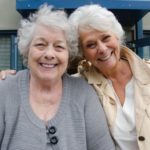 I am finding, as I continue my counseling work with older clients – those in their 80’s in particular – that there is a concern they express about the state of our U.S. government. These people have been raised with a sense of decorum, a respect for one’s character, integrity and good manners. My clients are a small pool so I don’t have a large study going on, however, their views make sense to me. That is, that the way our government behavior seems to be devolving into an angry, polarized, rude, dishonest style of treating each other and that this is something they have not seen to this degree in our country.
I am finding, as I continue my counseling work with older clients – those in their 80’s in particular – that there is a concern they express about the state of our U.S. government. These people have been raised with a sense of decorum, a respect for one’s character, integrity and good manners. My clients are a small pool so I don’t have a large study going on, however, their views make sense to me. That is, that the way our government behavior seems to be devolving into an angry, polarized, rude, dishonest style of treating each other and that this is something they have not seen to this degree in our country.
They express concern about this, yes. They worry about where the government is headed. They remember times when Democrats and Republicans disagreed heartily yet were able to work together, spend time together, even be friends despite policy differences.
The anger and polarization leads them to wonder whether our democracy can survive this. My octogenarian clients also talk about other major issues like climate change and health care and tax reform. They don’t all agree on what is to be done about these things – but they watch the behavior of America’s government and shake their heads.
They watch our president’s behavior towards leaders of other countries. Again, they were raised with the values of being courteous, polite and kind as well as strong. They are embarassed and sad that America is losing its standing in the world. Remember, this is the World War II generation – the “greatest generation” as Tom Brokaw labeled them. They have been through many years of watching American men and women fight and give their lives for these values, these truths that we hold as being “self-evident”. These are people who have studied *and lived* history. There are veterans amongst them as well.
Many of the baby boomer clients I see – in their 60’s and 70’s – are also afraid and worried. They tend, in general, to still be busy, though, with working, watching grandkids, traveling, hobbies and other distractions which take up much of their contemplative time. It is the older generation I find that is expressing the most grave and deep concern about our country.
Others may say “it was ever thus”, i.e. that older generations worry about younger generations. Although my older clients did report concern about issues during the previous administration, they are much more worried at this point.
Shouldn’t we be listening to our elders more? They remember the autocratic regimes of Hitler, Stalin, Mussolini and others. They remember the warning signs, the lead-up to widespread wars. They are heartened that Dan Rather, Carl Bernstein, many historians and people who served during the Watergate hearings are being brought out to educate and remind about those times, and to share their experiences and perspectives. Much more of that is needed.
Solutions to The Problem That Has No Name
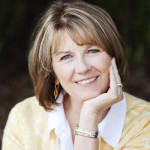 Here are, as promised, some tools that boomers are using to help keep their spirits afloat as they navigate the transition from their 60’s into their 70’s. They are simple and we mostly know about them. Putting them into regular practice is the key towards feeling better.
Here are, as promised, some tools that boomers are using to help keep their spirits afloat as they navigate the transition from their 60’s into their 70’s. They are simple and we mostly know about them. Putting them into regular practice is the key towards feeling better.
- Mindfulness, contemplation and loving kindness practices
Sitting still and paying attention. Daily. That is the gist of mindfulness practice. It doesn’t have to be for a set length of time. One minute is fine. What tends to happen is that if you can stop the momentum treadmill of everyday life even for a moment by stopping, sitting up with good posture and paying attention to your breath for one minute, you might find yourself sitting for more than one minute. The hardest thing is simply to make the effort to stop. This can be pulling over on the side of the road, in a parking lot, in your office, at your home, wherever. The word for mindfulness in an Japanese is also the word for heartfulness. This is where loving kindness practice comes in. Sitting quietly with awake presence includes paying attention to our feelings and not judging them. Letting them be, and pass by. This is a big long topic but keeping it simple, it’s about being kind towards yourself before you can begin to be truly kind to others. Repeating the simple Metta Loving Kindness mantras can be a place to start: “May I be safe, May I be happy, May I be healthy, May my heart be filled with loving kindess.”
- Exercise – aerobic; Yoga
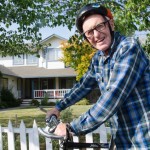 Exercise is key, we all know that. Again, even a few minutes can make a big difference both in physical health and in mental health too. A short walk around the block. A few minutes on a stationary bike. Dancing to some music on the radio. A Youtube gentle yoga video to help build muscle but also to stretch your muscles out. Most people find the most challenging part of this is getting started. So, starting by just committing to 5 or 10 minutes a day is a great way to get yourself going. Don’t start with too much of a commitment so that you give up!
Exercise is key, we all know that. Again, even a few minutes can make a big difference both in physical health and in mental health too. A short walk around the block. A few minutes on a stationary bike. Dancing to some music on the radio. A Youtube gentle yoga video to help build muscle but also to stretch your muscles out. Most people find the most challenging part of this is getting started. So, starting by just committing to 5 or 10 minutes a day is a great way to get yourself going. Don’t start with too much of a commitment so that you give up!
- Understanding the link between nutrition and mental health
More and more research is coming out about the links between good nutrition and good mental health. We are what we eat, it’s true. So many of the neurotransmitters that govern our moods are produced in the “gut”. Paying attention to what we eat – backing down the processed carbs and the white sugar is paramount to good health. Complex carbs, protein, vegetables and fruit. Simple. Fortunately we live in a day and age when good quality organic foods are available. Counting calories is an important thing to watch too. You can eat good quality foods but eat too much of them. Paying attention to your weight and aiming for a strong body are things many of our grandparents and parents knew. We need to pay attention to them too as we get older.
- Giving back to your community; volunteering
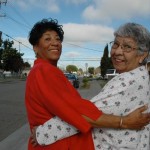 It’s not a surprise that helping others makes us feel good. People that survey volunteers at various causes always say that people report that they feel better than the people they help! As we get older and probably are retiring when we can :), people sometimes feel like now what? Traveling and doing hobbies and socializing are great – but so is having purpose and helping out our friends, family and community.
It’s not a surprise that helping others makes us feel good. People that survey volunteers at various causes always say that people report that they feel better than the people they help! As we get older and probably are retiring when we can :), people sometimes feel like now what? Traveling and doing hobbies and socializing are great – but so is having purpose and helping out our friends, family and community.
- Consciousness raising support groups
Since we are talking about a “problem that has no name”, being in a supportive peer group where we can compare notes, commiserate, exchange ideas, and yes, laugh!, can be sooo healing. There are meditation groups where people have discussions afterwards, support groups for caregivers, church/temple groups, groups that have to do with aging such as AgeSong in the Bay Area, and more. Many agencies that serve older people offer groups of various kinds, as do community centers. You might have to try one or two before you find one that feels just right.
- Nature – renewing a commitment to spending time outdoors
 There is a term in Japanese that translates as “forest bathing”. It turns out that trees release not only oxygen but also chemicals that contribute to the overall health of the forest. And, it turns out, these chemicals are very good for us humans! So, try to get out in nature, in the forest, or on the mountain, or by the ocean or river, or in the park. Anywhere where you can “forest bath” – meaning to simply stop and immerse yourself in the beauty of natural surroundings.
There is a term in Japanese that translates as “forest bathing”. It turns out that trees release not only oxygen but also chemicals that contribute to the overall health of the forest. And, it turns out, these chemicals are very good for us humans! So, try to get out in nature, in the forest, or on the mountain, or by the ocean or river, or in the park. Anywhere where you can “forest bath” – meaning to simply stop and immerse yourself in the beauty of natural surroundings.
- Counseling
Going to see a therapist who understands the journey of being in middle age and older years can be so healing and supportive. Any therapist might be helpful but particularly someone who understands that the challenges and opportunities and transitions we encounter in this adventure of growing older – can be very helpful in terms of you being able to understand what is common and normal in this part of your life. Understanding that you are not alone – you’re not doing something wrong most of the time – can feel like an unburdening. Yes you still have to figure things out and there are challenges. But the self-criticism, self-blame, and shaming can be *greatly* reduced with the power of a little education about what are called the “developmental tasks” of this age and the common landmarks of this territory. Plus, of course, learning about the many ways people like you are successfully dealing with a variety of issues is a huge help.
- Using the Arts to reconnect with Self
Re-exploring one’s love of the Arts can be so healing at this time in your life. Reading, writing, journaling, reading and writing poetry, playing a beloved instrument, learning how to play an instrument for the first time, taking a  class, learning to dance, going to art exhibits, singing in a group, going to concerts, enjoying doing crafts, arranging flowers… – all of these feed the soul and, now that you may have more time on your hands, are a good way to relax and keep your mind engaged in beauty rather than on problems. Winston Churchill, for instance, suffered greatly from depression – what he called the Black Dog. Painting, for him, was a tremendously helpful therapy.
class, learning to dance, going to art exhibits, singing in a group, going to concerts, enjoying doing crafts, arranging flowers… – all of these feed the soul and, now that you may have more time on your hands, are a good way to relax and keep your mind engaged in beauty rather than on problems. Winston Churchill, for instance, suffered greatly from depression – what he called the Black Dog. Painting, for him, was a tremendously helpful therapy.
Please feel free to email me if you have questions or comment below.
The Problem That Has No Name – Part 1
 The Problem That Has No Name – Part 1
The Problem That Has No Name – Part 1
This post is Part 1 of a series I’m writing about a phenomenon I notice in my work with midlife and older individuals and families as a mental health counselor. In this part, I’ll describe this surprisingly common situation and in Part II I’ll talk about some solutions that seem to help people get through it.
Before I get into that, though, I want to say that counseling is my third career. My first involved living in a spiritual community where our goal was to learn and practice skills that could make ours, and others’, lives better. I learned and practiced practical skills such as becoming a licensed EMT, teaching an EMT course on a Mohawk reservation in NY, helping with home births as a doula, providing medic services in a rural clinic, and selling books around the US and Canada including our vegetarian cookbooks and the well-known Spiritual Midwifery.
Later, my activism took a turn and I moved to California to raise my three daughters. There I became involved in creating and managing early online communities (starting at The WELL). What I learned while living in intentional community, I applied to the digital environment working always to provide people information, support ideas and fun. In those years very few women were online. In order to educate women about the potential benefits of what was to become the Internet, I founded the first commercial online service focused on women’s issues and interests: Women.com. We wanted women to be able to have convenient access to tools which could help them with their health, families, relationships, education and jobs.
After many years working in the technology field, I knew it was time for me to do something else. My attention turned towards counseling psychology and graduate school. Working originally with hospice patients, my practice evolved into a passion about learning about aging and empowering people as they go through older life. For the past decade or so, I’ve been focused on serving clients ranging in age from their 50’s up to their mid 90’s.
This “problem that has no name” has to do with a huge identity crisis I am seeing so often in my clients between the approximate ages of 68 to 72 years old. This age range makes up the majority of people who seek out my services. There appears to be a disturbing surge in anxiety and depression in these years. My clients report: “It came on so suddenly!” “I feel like I am regressing, I never used to be like this!” “I don’t know what the matter is with me!” They typically then experience shame, self-criticism, insecurity and isolation from friends and family. They turn to doctors in hopes that prescription medications can “fix” them.
Why is this such a problematic time of life? Is it the number 70 and what that represents? Quite likely. Is it that people typically think well now I *am* old? My clients ask, “How will I get by?” “Who will take care of me?” “Will I be alone?” “What am I capable of doing and what do I have to or want to let go of?” “Who am I now?!” One man calls it “How then shall we live?” Another male client says “Is this all there is?” And a 70 year old woman refers to this time as the “What’s it All About, Alfie” years.
For the first time in human history, people are living this long. Science has helped extend the quantity of life. However, we have been slower to catch up the issues of the quality of life. We are encountering a mass phenomenon – people running into the challenges of this transitional state that happens around age 70 – and one of our biggest contributing problems is that we pretty much have no language in our culture to describe it! It is “the problem that has no name”.
Betty Friedan coined this expression when she wrote about of the challenges facing women in the 1950’s and early 1960’s in her 1963 book The Feminine Mystique. She explored and exposed the widespread depression and anxiety in women who, post WWII, were pressured by the culture and consumerism to try to fit into a fabricated feminine image which offered them sole identities as housewives and mothers. With narrowed choices about work and roles, women became massively disillusioned, unhappy and self-critical. Then came what is called the 2nd wave of feminism which gave language to this phenomenon.
Similarly, today we are largely ignorant and seemingly uncaring as a consumer culture about the pressures and narrowing options available to us as we grow older. Negative stereotyping, messages about not being valued and feeling invisible is widespread. The result is a huge wave of disenfranchised, oppressed, aging individuals who are unaware of this bigger picture. Rather than understanding the ageist backdrop affecting their lives and moods, they fall into self-criticism, fear and depression.
The good news is that there is a groundswell happening in its early stages that is beginning to illuminate this 21st century problem. Because this is the first time in human history that we are living so long, as one of my clients put it “we (humans) haven’t had a chance to study it yet”. However, there are more and more activists who have been or are forging ahead. Robert Butler, MD was one of the pioneers – he coined the word “ageism” and won the 1975 Pulitzer Prize for his expose Why Survive: Being Old in America. New York Times author Paula Span educates us regularly in her insightful column “The New Old Age”. Ashton Applewhite has a no-holds-barred bestselling book This Chair Rocks: A Manifesto against Ageism. And Dr. Bill Thomas, MD regularly travels the country to shake things up with his “Age of Disruption” tour. People are beginning to wake up to the harm that perhaps the last “ism” – ageism – is causing in America. Naming it can only help.
In Part 2 of this article, I will describe some tools and ways I’m seeing people use to navigate the transitional passage from their mid to late sixties to early 70’s. Some of them include:
- Mindfulness, contemplation and loving kindness practices
- Exercise – aerobic; Yoga
- Understanding the link between nutrition and mental health
- Giving back to their communities; volunteering
- Consciousness raising support groups
- Nature – renewing their commitment to spending time outdoors
- Examining and redefining roles
- Counseling
- Using the Arts, including journaling to reconnect with Self
 Excellent article from Business Insider on techniques for helping with happiness: practicing gratitude, labeling emotions particularly negative ones to diffuse them, making “good enough” decisions rather than stressing over perfection, and incorporating loving touch into our daily lives. The author, Alex Korb, of a new book called The Upward Spiral is a neuroscientist who cites the research and talks about what parts of our brains respond to these various practices. Also talks about how guilt and shame activate the brain’s reward center but of course are not good long-term habits.
Excellent article from Business Insider on techniques for helping with happiness: practicing gratitude, labeling emotions particularly negative ones to diffuse them, making “good enough” decisions rather than stressing over perfection, and incorporating loving touch into our daily lives. The author, Alex Korb, of a new book called The Upward Spiral is a neuroscientist who cites the research and talks about what parts of our brains respond to these various practices. Also talks about how guilt and shame activate the brain’s reward center but of course are not good long-term habits.
Here’s an intriguing quote from his book:
Despite their differences, pride, shame, and guilt all activate similar neural circuits, including the dorsomedial prefrontal cortex, amygdala, insula, and the nucleus accumbens. Interestingly, pride is the most powerful of these emotions at triggering activity in these regions — except in the nucleus accumbens, where guilt and shame win out. This explains why it can be so appealing to heap guilt and shame on ourselves — they’re activating the brain’s reward center.
Here’s the link to the article called “A Neuroscience Researcher Reveals 4 Rituals That Will Make You Happier“.
Brains of Elders Are So Full That Our Thinking Slows Down
Instead of thinking that we are not as sharp, cognitively, as we used to be, we should remember what the researchers in this study prove: that we have so much information in our brains as we get older, it’s like our hard drives are filling up so recall can slow down a bit. Here’s the full article.

“Brains of Elderly Slow Because They Know So Much” – The Telegraph
Signs of Depression in Older Life
Not Enough Geriatricians or Geriatric Psychotherapists Either
One of our old friends Katie Hafner just wrote an important article for the NY Times entitled “As Population Ages, Where Are the Geriatricians?”. Katie eloquently explains the situation which is that this country is woefully underserved when it comes to doctors who understand the myriad complexity of symptoms that older people encounter. Docs are under-reimbursed by Medicare and so many choose not to go into this field. Others find it too complicated, too difficult, maybe too sad for them. At any rate, treating older people is NOT the same as treating younger people – whether it involves the medical field or the mental health field! Here’s a top-notch quote from Katie’s article that speaks to that fact:
Dr. Eckstrom was a general internist who practiced in primary care for nine years before returning to Oregon Health and Science University to complete a geriatrics fellowship. “I thought I was doing a good job caring for my patients,” she said. “But oral trenbolone for sale I wanted to do more geriatrics teaching and research.” The fellowship opened her eyes. “I had no idea what I didn’t know,” she said.
I hope there will be more articles and education for the public about this critical lack of informed care for the rapidly growing aging population. Someone commented that the government should increase Medicare reimbursement rates for doctors – and I think for mental health professionals too – to encourage more people to go into this field. Someone even suggested the government should pay the student debt for medical students going into geriatrics. We have to do something!

